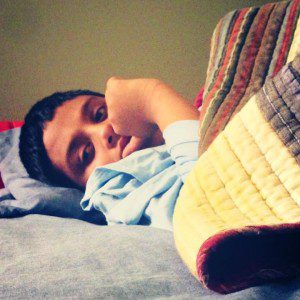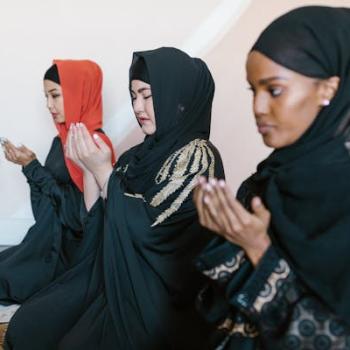Let’s start by saying this:
Human life has value. It has worth and meaning. No matter how hard a struggle one’s life may be, no matter how tough things get for the one living his life and secondly for others who are helping that person to live his life — life is precious. We all have the right to live, a right that no one should ever take away.
London McCabe deserved to live. As did Jude Mirra. Isabelle Stapleton, who survived a murder attempt by her mother, also deserves to live her life. Just this week 6-year-old London, autistic and nonverbal, was fatally thrown off a bridge in Oregon by his 34-year-old mother Jillian McCabe, who had said online that she needed help, as her husband had recently been diagnosed with multiple sclerosis.
In New York City, 53-year-old Gigi Jordan was convicted this week of first degree manslaughter in the 2010 death of her autistic son, Jude Mirra. Saying she did it to save her son from being sexually abused by his father, she gave her son a deadly cocktail of vodka, Ambien, Xanax and hydrocodone. And in September, 46-year-old autism blogger Kelli Stapleton was sentenced to ten to 22 years in Michigan to first-degree child abuse. She had lit two barbecue grills in a closed van with her 15-year-old daughter Isabelle, who was found unconscious from carbon monoxide poisoning.
These kids deserved to live. No matter how hard their care got, no matter how stressful the parenting became, these kids deserved to live. I can say this knowing how hard it can get, knowing how hard it has been at times with my own son, how overwhelmed I have felt at times.
So let’s also start by saying this: Parenting and/or caring for a loved one with special needs can be … well difficult just does not seem to describe it. If there was a word to describe how gut-wrenching things can get mixed in with infinite love, fear, despair and strength – that would be it.
There are minutes, hours, days, weeks, months or years when things can be very hard. I’m not just talking exhausting, not getting any sleep and back-breakingly tough. I’m talking all that, plus fearing for your child’s safety, maybe for your safety, for his mental and physical health, for the physical and mental health of the rest of your family. I’m talking all that plus the fear and exhaustion of trusting others to help care for your child and not hurting him or taking advantage of him when things are so very difficult, or the fear of not having any help at all and having to bear the brunt of care solo.
I’m talking about times when you feel God has forsaken your child and you (if you are the believing type, like I am).
I’m talking about times when you are beside yourself with worry, grief, fear, pain, frustration and anger at yourself. Maybe even underserved anger at your child. Because let’s be honest – although your autistic or special needs child in no way deserves your irrational anger, we are human. That means when we are pushed to the breaking point, we may feel anger – at the situation, at not being able to fix things, at what has happened to our lives, at everything.
So let’s start by saying that it happens — all that happens sometimes, for some parents and care givers when things become very, very challenging for and with their child with autism or other kinds of special needs.
Let’s start by being honest. I can do at least that with you.
About a time two years ago when things were going so very badly with my then nearly 12-year-old autistic son, there came a point when after getting calls from school to pick him up because the teachers couldn’t handle him, endless sleepless nights of worry, despair and fear that I couldn’t figure out why my son was feeling so awful, that one Friday afternoon I sat with him on the sofa, trying to hold him, trying to shield him from himself.
He wouldn’t stop hurting himself. It was endless – days upon days upon weeks upon months, from the time when he woke to the time he fell asleep exhausted. If we intervened and blocked him from the self-injury, he would turn on us. We were all around him, trying to help him – his dad, grandparents, therapists and teachers. But it was me who pulled most of the weight, who couldn’t walk away or leave him alone, even when I could do nothing to stop it.

And so that Friday afternoon I sat, trying to protect him from himself, which was only making things worse, tears streaming down my face. My dad had come up for two days because my parents sensed that we were at our wits end, and so my mother sent him to me. He sat helpless at the dining table watching me.
There is something so wrong, I told him. We need to do something. He needs help. I need help. We can’t go on like this much longer. I just don’t know what to do.
And it wasn’t like the cavalry came and took over after that moment. But acknowledging that I needed help to help care for him and bring him through this terrible time was necessary. Saying it was the first step. Getting and accepting help was the next.
Let’s start by acknowledging parenting is tough and rewarding. Special needs parenting is that much more tough — and rewarding. But, even before we can start with all that, at the very beginning is that simple and undeniable fact that autistic children and individuals are not a burden. They are not to blame when the care sometimes becomes seemingly impossible to manage. They are not at fault, and they are human beings who deserve respect, dignity and, well, life.
That we need better support services, financial help through our health insurance plans, more Medicaid funding and Medicaid waivers, a community of care and support for our children and individuals with autism and so much more – this the mantra that is on endless repeat from everyone in the autism community.
What also needs to be on endless repeat is the sanctity of life. No matter how hard the parenting can get, the care giving can be – our autistic children are not to blame. Says Jess Wilson over on Diary of a Mom:
If hard becomes justification for murder, we have not only desperately lost our way but given license to anyone who can’t handle it anymore – teachers, caregivers, personal care assistants – to kill our children. Because they’re autistic. And caring for autistic people can be challenging.
I’ve had well-meaning friends tell me over and over how they wish things were easier for me, or how I am such a good, strong mother to do all I do. But the truth is, I’m not. I’d like to think that I am doing what anyone would do for their children. And things don’t need to be easier for me. They need to be easier, better for my son. It starts with him, because if he has peace, calm and happy, then so do I. And when he doesn’t, when things are really hard, our whole family will keep moving forward. We will all live and care for each other the best we can.
There is no other choice.
















